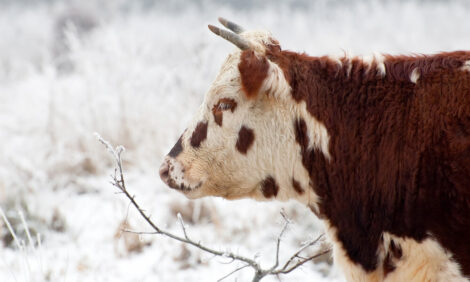



Development In Germany Heightens Concern That Bluetongue Virus May Come To UK
FARMING UK - The German National Reference Laboratory for Bluetongue has reported that bluetongue virus has re-emerged on a German cattle farm that was positive for the virus last year.Professor Peter Mertens, Head of the Arbovirus Research Group at the Institute for Animal Health, commented "Re-emergence of the virus in northern Europe may increase the risk that bluetongue virus could spread to the UK this year."
"The findings in Germany suggest that the virus may have survived through the winter."
The German veterinary authorities had placed bluetongue-free cattle amongst some herds that had the disease last year. Laboratory analysis of samples collected sequentially over the last few months have led scientists to conclude that the virus spread to a previously virus-free animal during April.
Bluetongue occurred for the first time ever in Germany, Belgium, France, Luxembourg and the Netherlands last summer, and established a major focus of infection on the coast of Belgium, close to the UK. All ruminants can become infected, and cattle are more susceptible to infection than sheep.
Bluetongue virus is spread by biting midges. "Infected midges can be spread large distances by the wind, like aerial plankton, taking the virus with them" said Peter Mertens. The UK is most at risk when there are easterly winds that could blow infected midges from continental Europe to our south-eastern counties.
"Essex, Kent and East Anglia are most at risk." said John Gloster, of the Met Office, seconded to the Institute for Animal Health. "Easterly winds from the near continent can be expected to blow towards these counties four to seven days each month during May to October."
TheCattleSite News Desk


